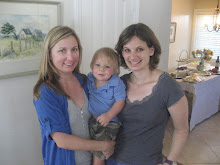 Sorry we haven't posted lately. I haven't been reading anything ground breaking. I have spent the last month reading mystery books. Nothing to write about! A month ago I finished What is the What and really liked it. So here is a delayed review.
Sorry we haven't posted lately. I haven't been reading anything ground breaking. I have spent the last month reading mystery books. Nothing to write about! A month ago I finished What is the What and really liked it. So here is a delayed review. 3.5/5 stars.
We have heard so much about Darfur and the massacres happening there. It seems that some people are fed up with Sudan and pretty much every other world misery thrown at them -that's compassion fatigue. Angelina Jolie just wrote an op-ed urging Obama to do something about Darfur, and I am not sure anyone noticed. Thsi book is interesting because it is about Sudan, but not about Darfur. Atrocities also happen in the south of the country -now more than ever, since elections are looming.
Valentino Achak Deng was a little boy when his village was ransacked by the government's militia. He had to flee, leaving behind his family -not sure whether any of them survived- and his friends, and started a long walk to a refugee camp in Ethiopia, then in Kenya, where he stayed 10 years before being authorized to emigrate to the US. I found that the most compelling parts of his story were not the bis about his walk -though they were certainly interesting- but the bits about his life in the camp and in the US.
Life in a refugee camp is not what we imagine. When you stay in a camp for 10 years, you get organized, you go to school, you flirt with people your age, etc. Pretty much you try to have a life as normal as possible. But social hierarchy was strong, even in the refugee camp, and boys without a family were at the bottom of the ladder. So Valentino had to find ways to survive and thrive in this environment.
Life in the US for a new refugee is definitely not what we might imagine. I don't know actually what one imagines, but I was taken aback by the difficulties these men and women encounter. I watched a documentary, "God grew tired of us", which highlighted some of these challenges: find a job, go to school, figure out how everything works, from electricity to getting a driver's license to using micro waves to eating new food. Usually, life in the US means work 2 menial jobs and go to school if time permits. This is not at all what these refugees imagined life would be like, and it is not what some immigration adversaries have in mind either ("taking your jobs away?" Give me a break!). Also, relationships with the African American community are not easy (in the first scene of the book, Valentino is held hostage in his own apartment by two African Americans). Finally, it seems that anytime Valentino said he was from the south of Sudan, people would lose interest -"oh... you're not from Darfur..."- and that refugees expected too much of their mentors in the US -as Valentino said, they have no boundaries to their demands- and can make people who wanted to help them tired and weary.
This is what struck me the most. There are a lot of refugees all around us, and this book made me want to help them get acclimated to the US. Have I done anything in the last month? No. Will I? probably. I hope after reading this book you will know more about what is happening in the Sudan and I hope it will be a call to action.

No comments:
Post a Comment